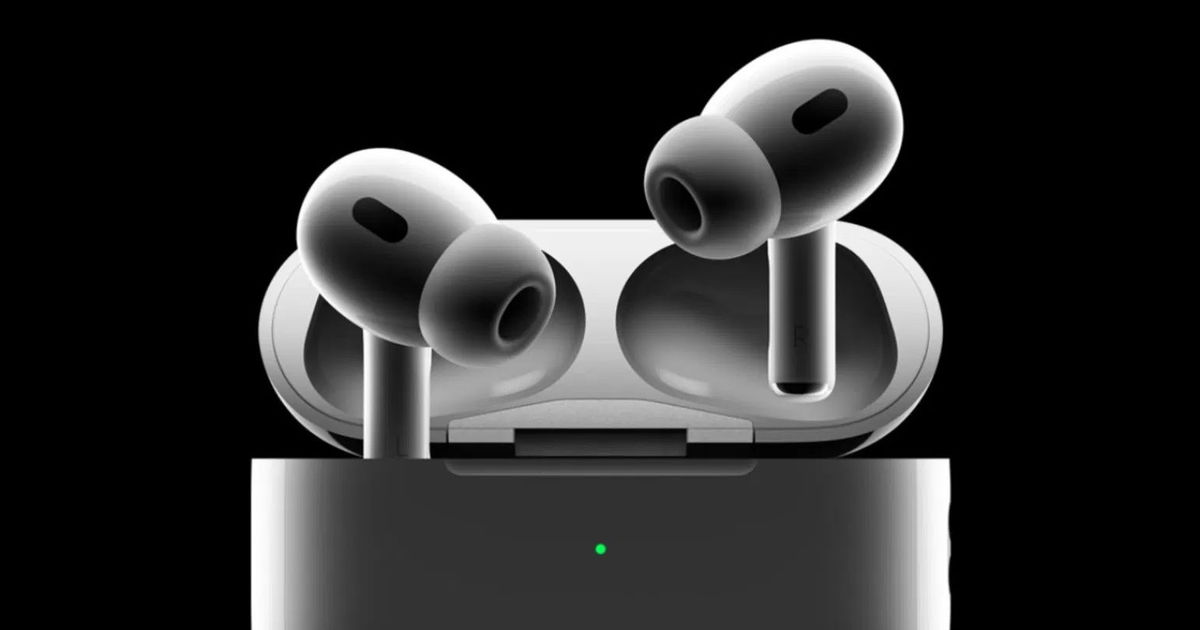The other day, it suddenly turned out that the Apple team invented the M1 processor core and independently created the designs of their “premium” versions of the M1 Pro and M1 Max.
It also manages memory across all devices and SoCs for the Apple Watch.
The main chip design in the company Joni Srugi was born in this country. Thanks to him, Apple released its A4 chip for the iPhone 4, and he put together a team that successfully made the first transition to Apple Silicon.
And even now, when people in the US are laying off tens of thousands, Apple has more than 130 of its 600 open vacancies in Israel.
Wherein the company stubbornly does not open the Apple Store here and does not even launch an official online store.
Below I tell you how difficult it is to buy an iPhone in a country that meaning chips for them, why the right to sell has not yet happened and how much you need to pay for using mobile communications.
The situation with Apple in Israel strongly resembles Russia in the 2010s
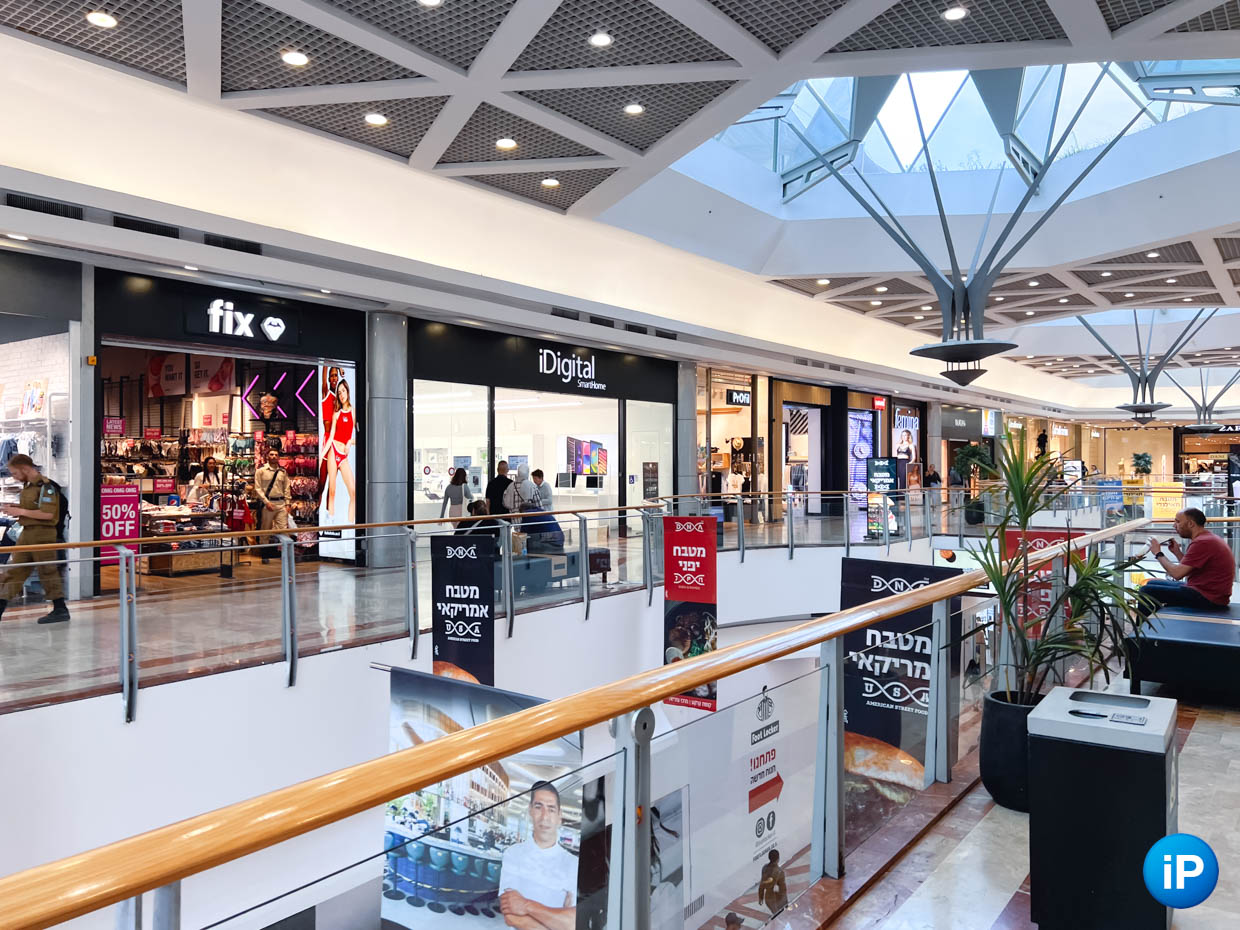
In shopping malls re:Store replica stores

Even less difference inside.

The share of iOS in Russia in May 2023, according to statistics statistics counterwas 31.25% compared to 68.4% of Android users.
This is slightly more than 30.46% of iPhone owners in Israel.
At the same time, an official online store operated in the Russian Federation until February 2022, and the company also actively developed its services.
The point, of course, is the number of buyers.
In Russia, smartphones are used by 106 million, and in Israel by about 7.8 million. Of these, 30% of iOS users in Russia is almost 32 million man, and in Israel everything 2.34 million.


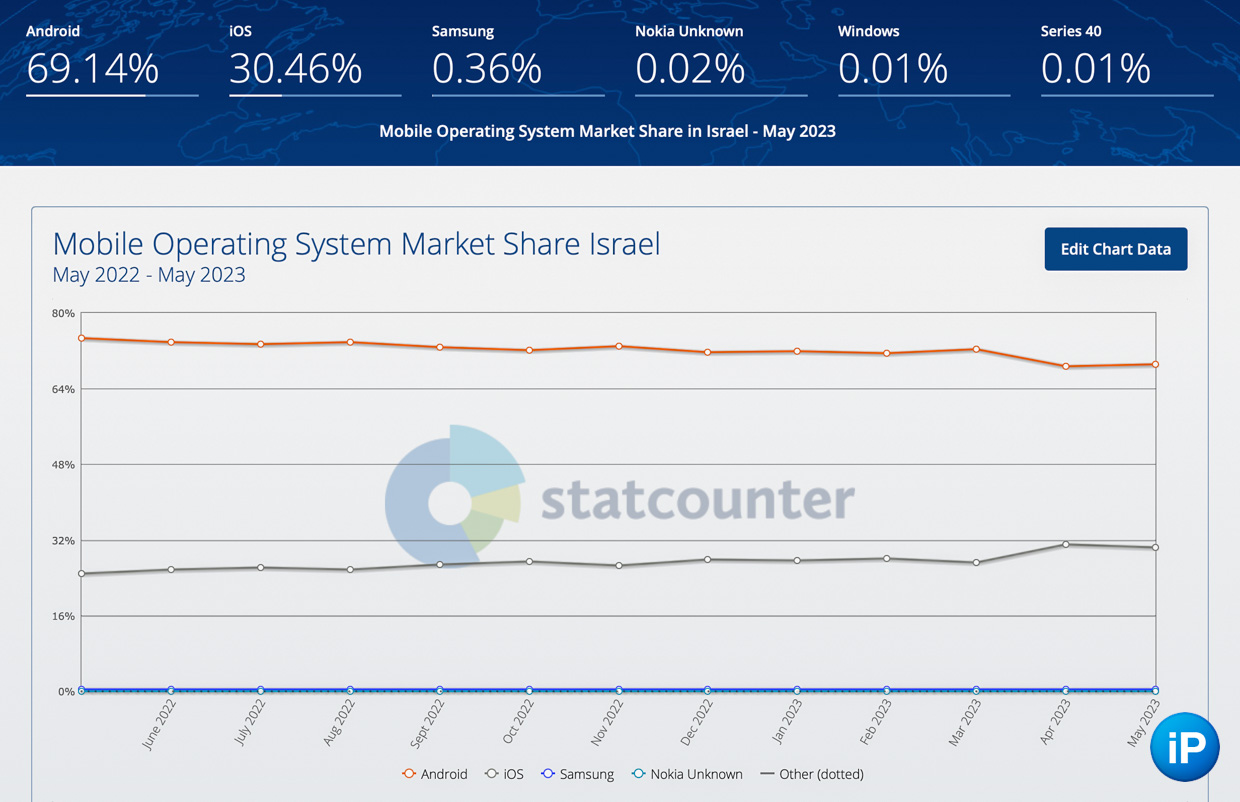
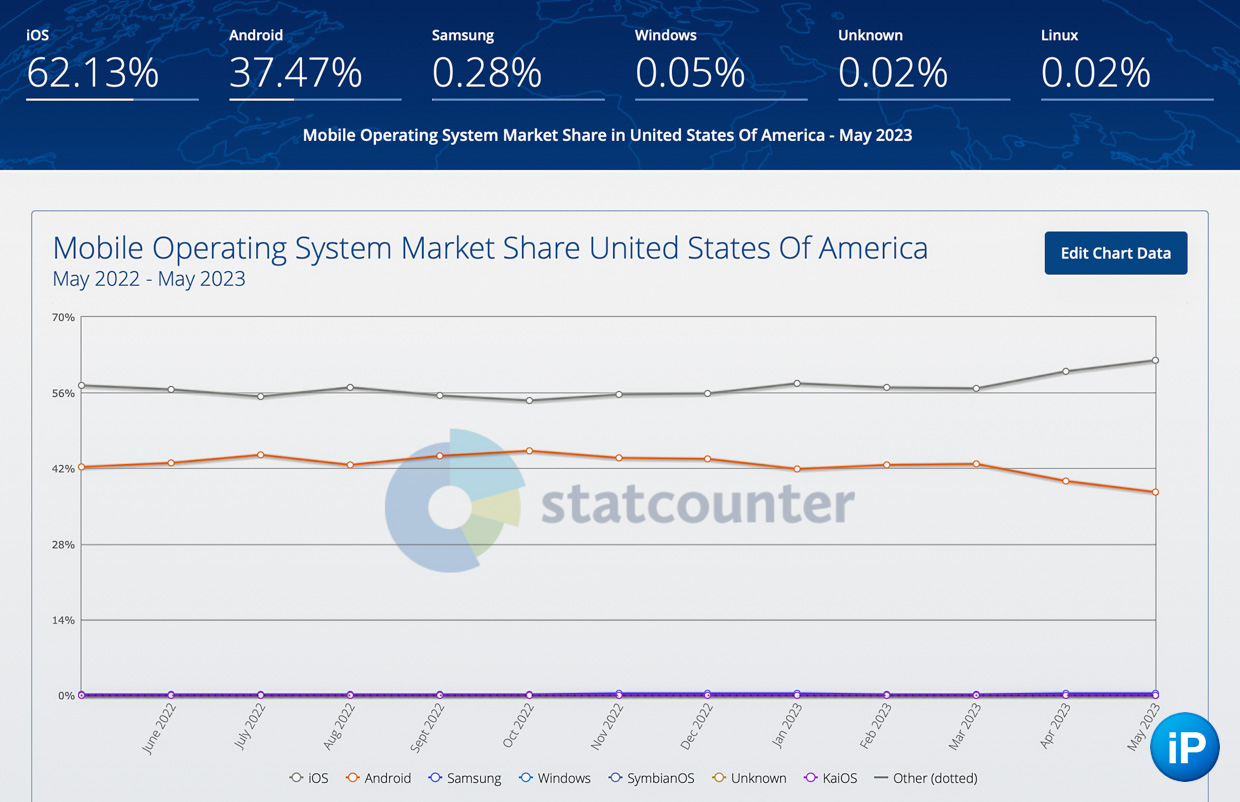
Apple, as we know, aims for big sales.
As a result, it turns out that you can buy in Israel only through the same official resellers as re:Store in the Russian Federation.
These are, for example, iDigital and iStore, which are easy to find in Tel Aviv.
I will talk about them below, but first I will show how sad the regional web page of the company looks.
Site is 10 years old

Apple’s local site has a heavy feel for the early 2010s.
Of the modern ones, there are only pages of the newest products, including the fresh MacBook Air 15″.
No Hebrew translation, all sections in English. Not a word about the services, but at least the prices in the App Store are in shekels. True, they are 30% more than in Russia: for example, for 2 TB above iCloud + they ask for 39.9 shekels or 940 rubles, but I always paid 599 rubles.
At real points there are no sections about Vision Pro, AirPods, TV and Home, Entertainment.
But there is a “Where to buy” tab, which I have not seen for almost 10 years.
This page is in an old design that features a dead iPod touch, a 2012 MacBook Pro, and an iPhone 6.
There are not even links to official resellers, although in Tel Aviv I found at least two large networks.
Their prices, however, are not encouraging.
Almost everything is more expensive than Russia

One of the most notable Apple Stores in Tel Aviv

He is the top
Apple doesn’t need contact with private retailers to reap the benefits: developers have not agreed to the company’s terms (due to a subsequent death) and iPhones are selling well through partners.
Regional accident page that equipment can be bought from a telecom operator Partner, Pelephone, cellular And HOT Mobile with links to their stores.
But authorized resellers in the city are much more accessible, they can be seen from afar. For example, I have often come across iDigital, iPlace And iStore (yes, proprietary I here is a good sign.
The interior absolutely repeats the re:Store format or the former СStore and somehow gives off the first generation Apple Store.
White walls, white shelves, wooden tables, glass showcases with accessories. No shelving made of natural materials, granite walls, marble terrazzo and avenues with trees, as in real Apple Stores.


The price of a MacBook Pro 13 with M2 in ancient design killed: 141,000 rubles for the basic configuration 8/256
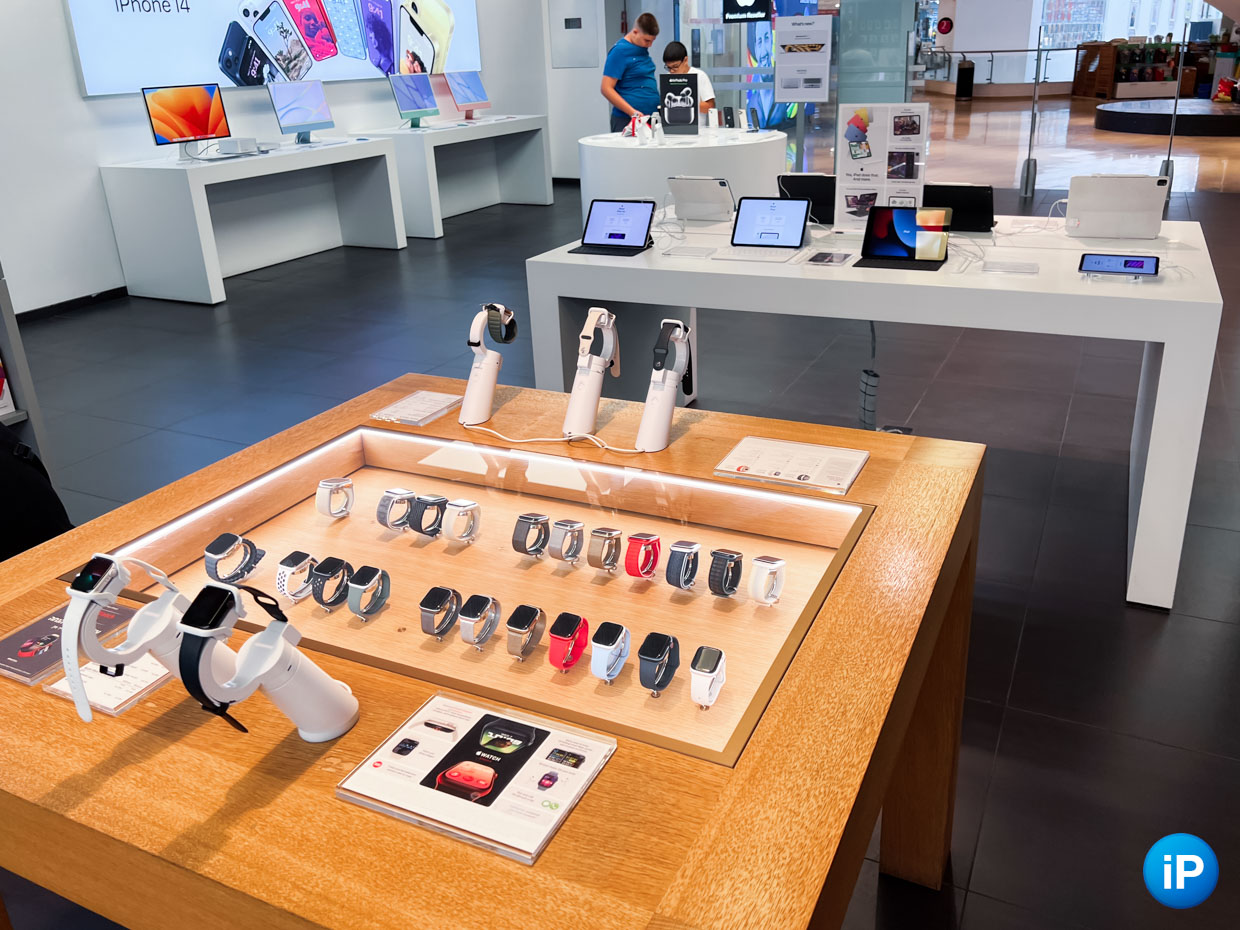
Of the furniture in the Apple Store, only Apple Watch tables resemble
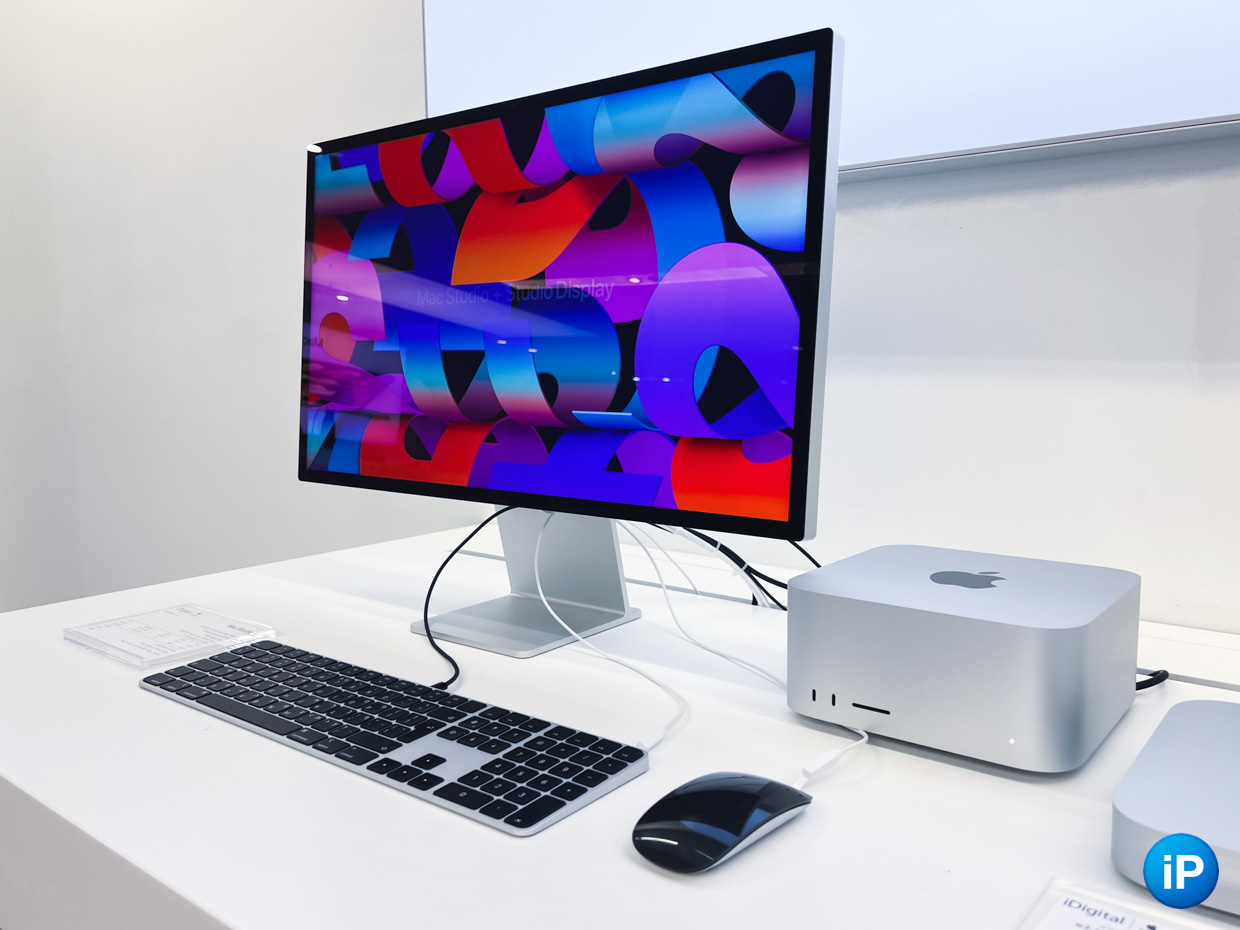
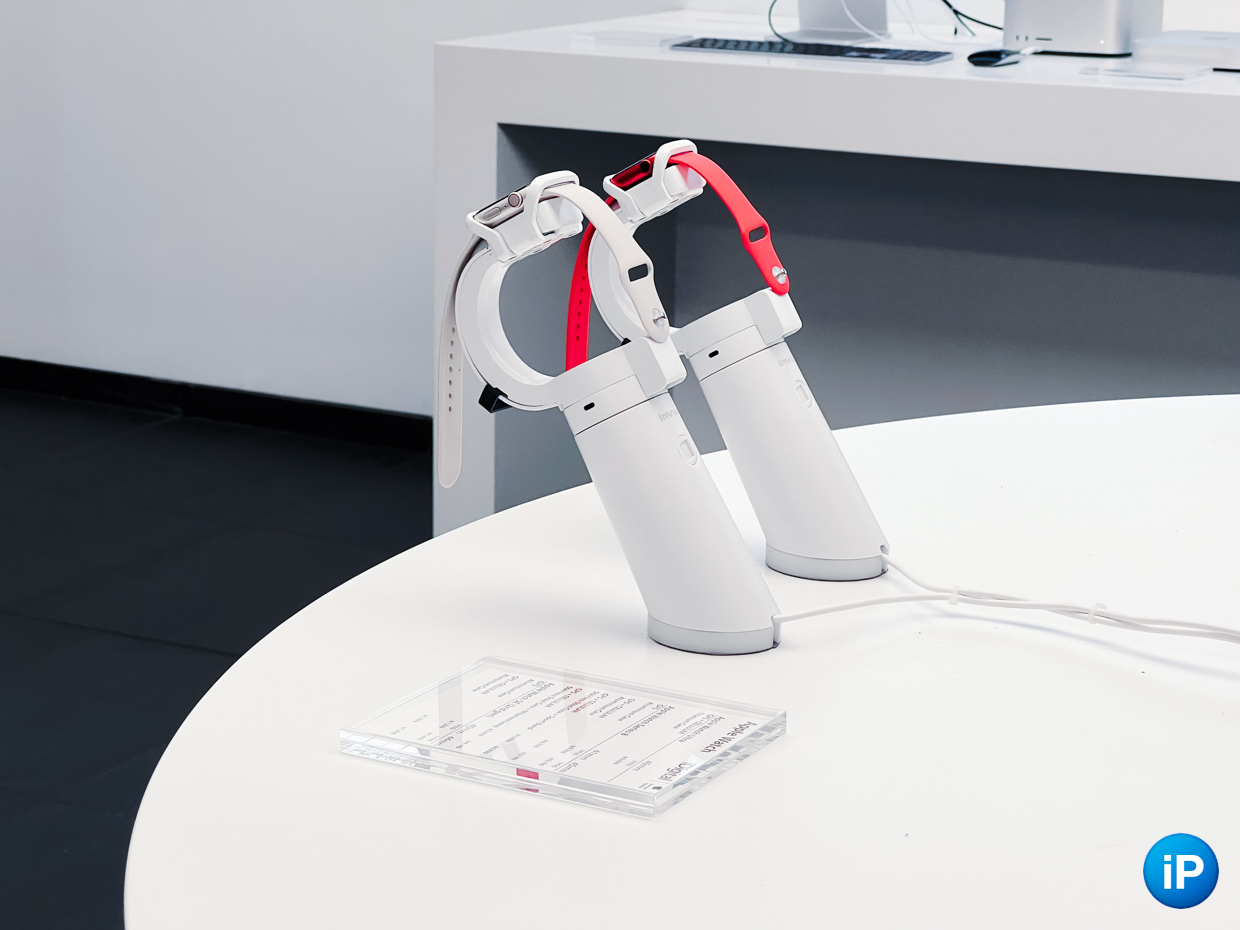

New items of operational surveillance
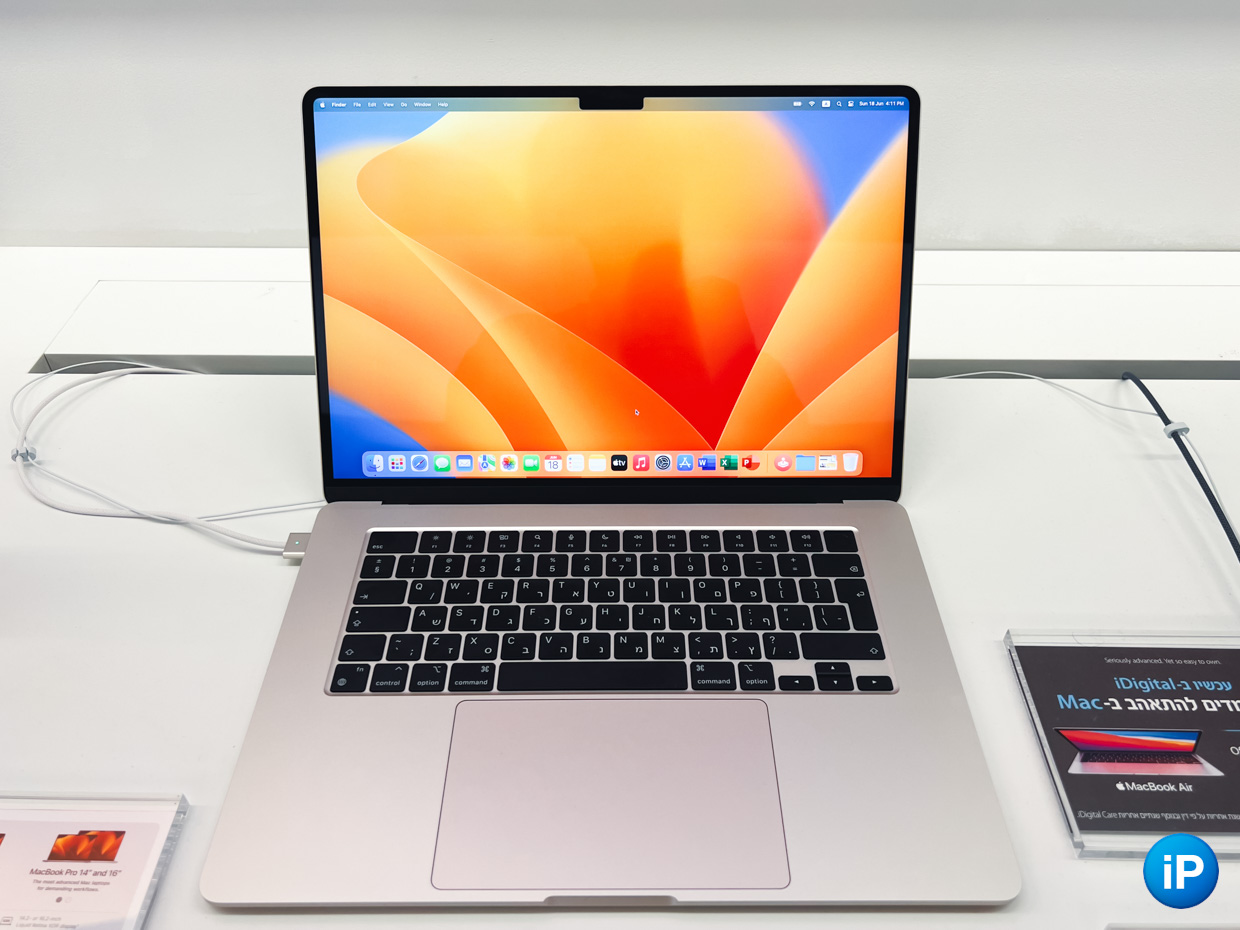
The MacBook Air 15 is already available to see and touch. Unrealistically thin, magic
This is not a mirror video, this is how the interface looks like if you change the system language to Hebrew
In iStore and iDigital prices are up to the crown shekel, and in iPlace a little cheaper. This hints at the influence of Apple and manual price regulation in the country.
For the sake of interest, I took the most popular models below, compare with Russian retail:
iPhone 14 Pro 128 GB
‣ re:Store RUB 109,990
‣ iDigital RUB 116,000 (NIS 4,949)
iPhone 13 128 GB
‣ re:Store RUB 72,990
‣ iDigital RUB 78,000 (NIS 3,333)
Apple Watch Series 8 45mm
‣ re:Store RUB 44,990
‣ iDigital 44,500 rubles (1899 shekels)
MacBook Air M2 256/8
‣ re:Store RUB 125,990
‣ iDigital RUB 117,000 (NIS 4,999).
But there is one feature. In fact, the southern part of Israel, off the coast of the Red Sea, stands in the city of Eilat as a free economic zone. The government does not charge a tax on many purchases, including consumer electronics.
Therefore, all iPhones, MacBooks and other equipment are 17% cheaper there. Many sites like multiple prices: regular and from the branch in Eilat.
Why don’t everyone go there for iPhones? It takes a long time to get to this port and resort city, located on the border with Egypt and Jordan.
The journey by bus will take more than 5 hours one way and will cost 2000 rubles. If you really want to, then you can get there, but you need to allocate a day, or even two, for this. The problem is also that even one night due to hotel prices will instantly eat up all your savings.
Apple Store wanted to open in Tel Aviv, but did not grow together
61-storey skyscraper Azrieli Sarona Tower in Tel Aviv. There could have been an official Apple store, but in the end they opened the flagship Nike
A major developer of offices and shopping centers Azrieli Group operates in Israel. With him, Apple led especially for more than two years, until in 2019 they finally failed.
The company sets strict conditions for landlords. It is known that its stores receive a large flow of customers, and therefore automatically become an event of attraction. Rumor has it that Apple expects mall owners to hide store advertising and inventory costs.
Plus, the Cupertinos are not shy about forbidding other stores from having its opportunity. For example, next to such a point of view in India, the owner of a shopping center cannot enter into a lease deal with Amazon, Sony and other sometimes non-obvious competitors.
Tel Aviv is a very small city with a population of about 500,000 people. In this case, there are not many shopping centers, and when another ban is established on large companies, dead ones may be opened. The area runs the risk of simply being empty.
But it’s easy to buy a SIM card and fix the iPhone
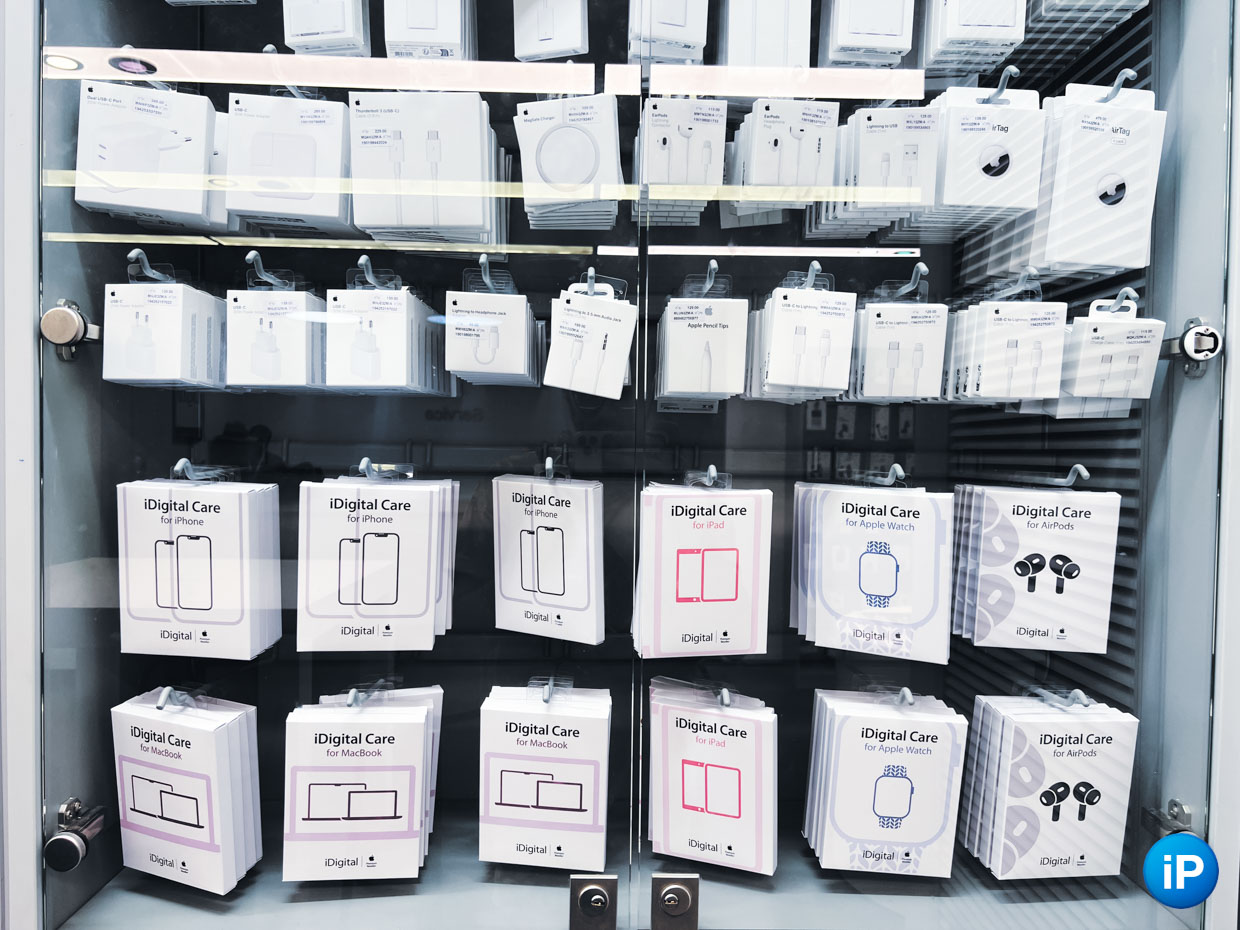
Resellers have developed a large device “insurance” network
In Turkey, for tourists, SIM-cards work only for two months. After that, you need to either buy a new one on the same conditions, or make a residence permit and take it a little cheaper.
Also, 4 months after arrival, mobile communications on the phone simply refuse to work until you pay a tax of about 30,000 rubles. Another option is to buy an officially imported model and pay 100% tax.
And without that payment, you can’t even fix the iPhone. At the Apple Store in Istanbul, I was denied an unusual battery replacement because the IMEI number is not registered in the Turkish registry.
None of these problems out of thin air Israel will not.
The process of buying a SIM card was literally the most original in the whole world..
I came to a random store with phones, said how many months I needed a SIM card, lost it for a period in advance, put it in my phone and it all worked right away.
No volumes, no views of residents, no additional conditions with undemanding passports. Even the seller spoke Russian.
For 3 months I gave 4700 rubles, at that time it was 210 shekels. Of these, 30 “for connection” and 60 per month. Regular users pay an average of 30 to 40 shekels.
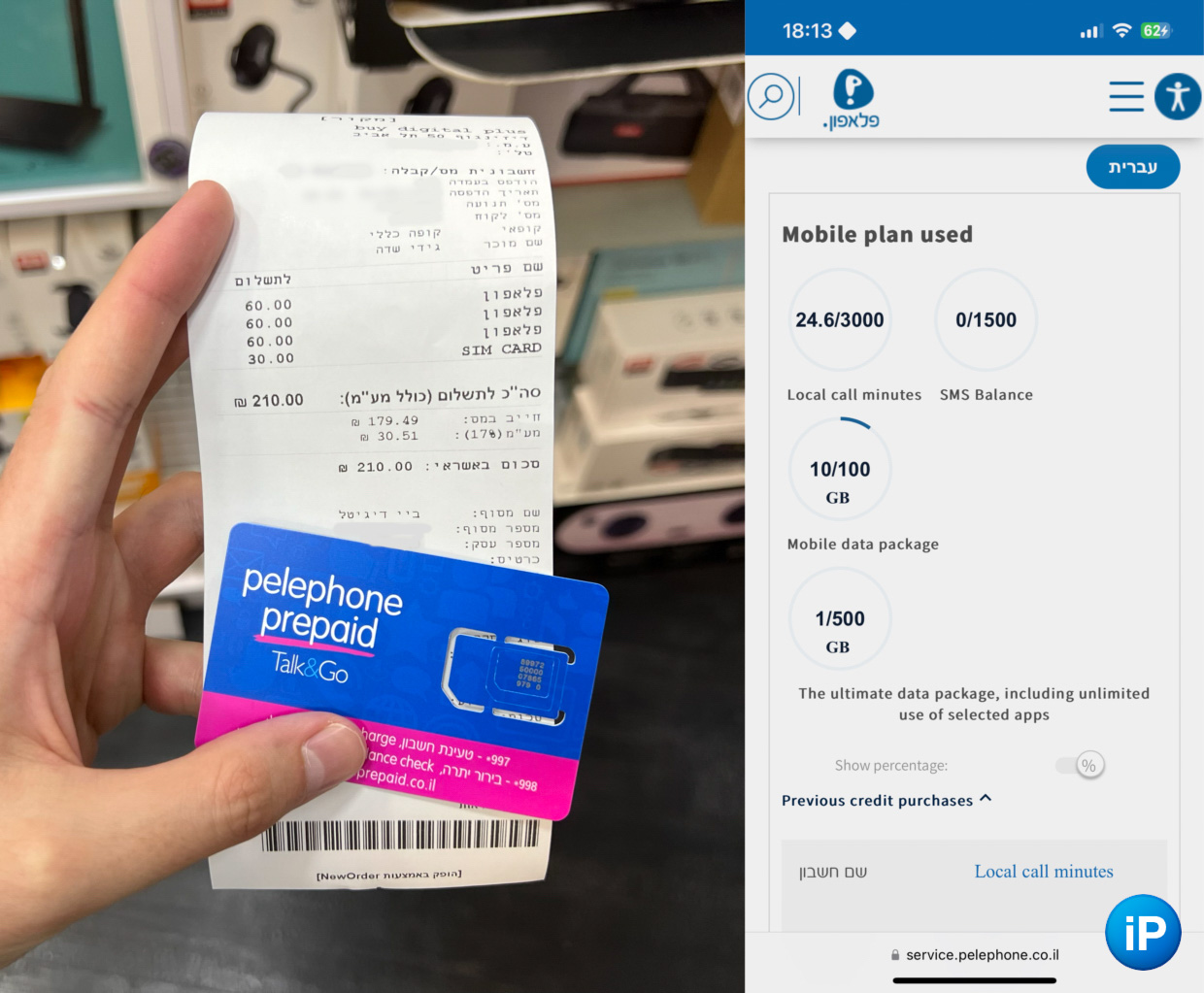
Simka is issued such a card without a pompous envelope
For 1400 rubles a month I get 100 GB of internet, 1000 minutes and 1000 SMS. I have never seen such a generous offer in my life. And this meetings rate. A friend has a plan for 500 GB per month, which can be distributed: since he does not have Wi-Fi at home, it turns out conveniently.
Repairing an iPhone isn’t a problem either.
As for the used market, so far only an observer has dipped it. According to the first impression of Avito’s analogue, which is called yd2, the prices are also close to construction, but the ad looks neater and you trust them more.
Well, there will be no confusion with phone versions. Unlike Turkey, with their terrible shutdown of mobile communications for imported devices, there are no such problems in Israel.
📸 All photos in the article:

















Source: Iphones RU
I am a professional journalist and content creator with extensive experience writing for news websites. I currently work as an author at Gadget Onus, where I specialize in covering hot news topics. My written pieces have been published on some of the biggest media outlets around the world, including The Guardian and BBC News.


